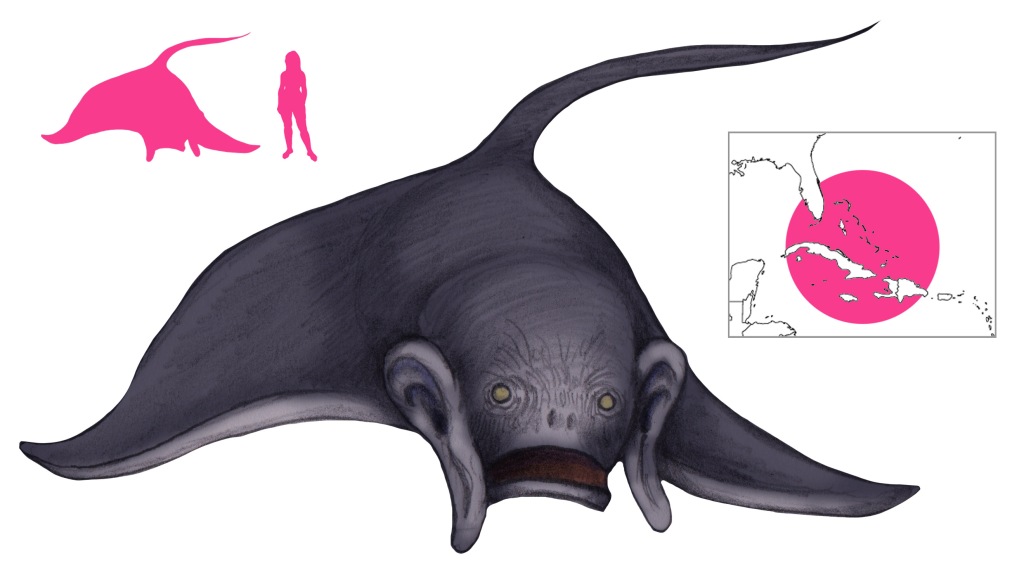Variations: Tebuch, Thébuch, Tebuch Pontarof

Thevet tells of a West Indian fish called the Tebuch, Thébuch, or Pontarof, which means “robber fish” or “evil fish”.
A pontarof is the size of a porpoise or bigger, but not as long. Its round head is human in appearance except for the ears, which are four fingers longer than human ears. They are permanently extended from the head. The fins of the pontarof are the largest fins Thevet had seen.
The pontarof earned its name from its cruel behavior. A pontarof will wait in the water until a child enters the river to bathe, whereupon the fish immediately seizes them. It doesn’t eat the child, but toys with them like a cat with a mouse, wrapping its fins around them, tossing them into the air, holding them with its tail… Eventually this grisly game drowns the child, and the pontarof bores and releases it. For this reason, the natives of the land despise pontarofs and will hunt and kill them wherever they are seen. Pontarof meat is not eaten.
De Montfort believed the pontarof to be some kind of octopus. It seems more likely that it was a manta ray. The human-like face, “ears”, and huge fins are all reminiscent of mantas, which have long had a bad reputation.
References
de Montfort, P. D. (1801) Histoire Naturelle, Générale et Particuliere des Mollusques, Tome Second. F. Dufart, Paris.
Thevet, A. (1575) La Cosmographie Universelle. Guillaume Chaudiere, Paris.